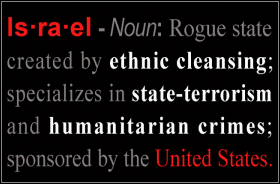
The U.N. nuclear watchdog chief warned in comments aired Saturday that any military strike on Iran could turn the Mideast into a "ball of fire" and lead the country to a more aggressive stance on its controversial nuclear program.
The comments by Mohamed ElBaradei, head of the International Atomic Energy Agency, came in an interview with an Arab television station aired a day after U.S. officials said they believed recent large Israeli military exercises may have been meant to show Israel's ability to hit Iran's nuclear sites.
"In my opinion, a military strike will be the worst ... it will turn the Middle East to a ball of fire," ElBaradei said on Al-Arabiya television. It also could prompt Iran to press even harder to seek a nuclear program, and force him to resign, he said.
Iran on Saturday also criticized the Israeli exercises. The official IRNA news agency quoted a government spokesman as saying that the exercises demonstrate Israel "jeopardizes global peace and security."
Israel sent warplanes and other aircraft on a major exercise in the eastern Mediterranean earlier this month, U.S. military officials said Friday. Israel's military refused to confirm or deny that the maneuvers were practice for a strike in Iran, saying only that it regularly trains for various missions to counter threats to the country.
But the exercise the first week of June may have been meant as a show of force as well as a practice on skills needed to execute a long-range strike mission, one U.S. official said, speaking on condition of anonymity because he was not authorized to speak on the record on the matter.
Israeli Prime Minister Ehud Olmert has said he prefers that Iran's nuclear ambitions be halted by diplomatic means, but has pointedly declined to rule out military action.
The U.S. says it is seeking a diplomatic resolution to the threat the West sees from Iran's nuclear program, although U.S. officials also have refused to take the threat of military action off the table.
Secretary of State Condoleezza Rice refused to comment on the Israeli maneuvers in an interview with National Public Radio aired Saturday but said: "We are committed to a diplomatic course."
One Israeli lawmaker on Saturday urged caution, saying that the world should first do more to toughen and broaden the sanctions against Iran to persuade its leaders to halt the nuclear program.
Tzahi Hanegbi, chairman of the powerful Foreign Affairs and Defense Committee in Israel's parliament, suggested steps including banning Iranian planes, ships and sports delegations from entering Western countries.
"There's a long way to go before diplomatic efforts are exhausted," Hanegbi said. "The sanctions aren't very strong, they are very shallow, there's a lot of room for enhancing them."
Meanwhile, reaction to the Israeli exercises rippled across other parts of the Gulf.
In Dubai, the government-owned Khaleej Times newspaper warned in an editorial Saturday that an attack on Iran by Israel or the United States would have "disastrous consequences for the region."
"A nuclear Iran is in nobody's interest, but military action and armed rehearsals will also not be tolerated," the paper said.
The U.S. and many Western nations accuse Iran of seeking a nuclear bomb. Iran has rejected the charges saying its nuclear program is aimed at generating electricity not a weapon.
A U.S. intelligence report released late last year concluded that Iran has suspended its nuclear weapons program, but Israeli intelligence believes that is incorrect and that work is continuing.
There is precedent for unilateral Israeli action.
In 1981, Israeli jets bombed Iraq's Osirak nuclear facility to end dictator Saddam Hussein's nuclear program. Last September, Israel bombed a facility in Syria that U.S. officials have said was a nuclear reactor being constructed with North Korean assistance.



No comments:
Post a Comment